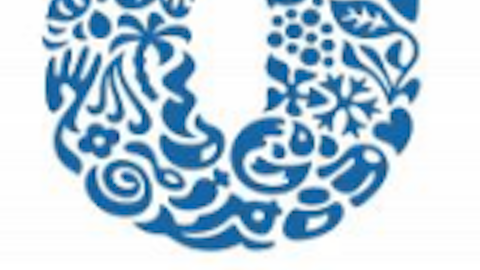
The divergence between the growth prospects of traditional and developing markets is borne out by latest International Monetary Fund’s (IMF) growth projections, which expect developing nations and emerging markets to expand 5.3% and 5.7% in 2013 and 2014, respectively. By comparison, it anticipates that the U.S. economy will rise 1.9% this year and 3% in 2014, while eurozone GDP is forecast to dip 0.3% in 2013 before rebounding just 1.1% next year.
Bubbly activity in these developing geographies can create large opportunities for many London-listed firms. Today, I am looking at Unilever plc (ADR) (NYSE:UL) and assessing whether its operations in these regions are likely to underpin solid earnings growth.
Emerging market growth offsets falls elsewhere
Unilever plc (ADR) (NYSE:UL) announced last week that groupwide organic sales growth for quarter one registered at 4.9%, with stellar performance from developing regions again driving sales higher. These areas accounted for 58% of total first quarter turnover of 12.2 billion euros, the company said.
Underlying sales growth from these markets increased 10.4%, the eighth consecutive quarter of double-digit expansion. The company also grew volumes in developing regions 5% in the first three months of the year, pushing groupwide volumes 2.2% higher, while a 5.1% pricing increase drove group pricing growth 2.6% higher.
In comparison, sales from developed markets drooped 1.9% in January-March, deteriorating from expansion of 1.6% in the whole of 2012. In particular, underlying sales in Europe receded 3.1% compared with growth of 0.9% in 2012.
The strong growth performance in emerging markets was “broad-based and driven by volume,” the consumer goods giant said, and noted particular strength in Indonesia, China, Vietnam, Thailand, and Turkey. Elsewhere, strength in Brazil and Argentina resulted in Latin American growth of 12.3%.
Unilever plc (ADR) (NYSE:UL) has said that trading conditions in Western Europe remain difficult due to the ongoing fiscal crisis there, while U.S. consumer confidence has also dipped. In addition, last year’s 10.4% expansion in emerging markets also suggests moderation from the 11.4% rise recorded in the whole of last year.
Despite this, revenues from these new regions continue to rise at an excellent pace, which I expect to be sustained by rolling product launches and innovation, not to mention exceptional pricing power. Unilever recently introduced its Cif and Domestos cleaning brands in Brazil, for example; its Becel margarines in the Turkish marketplace; and relaunched its Cornetto ice cream line in Mexico and Southeast Asia.

